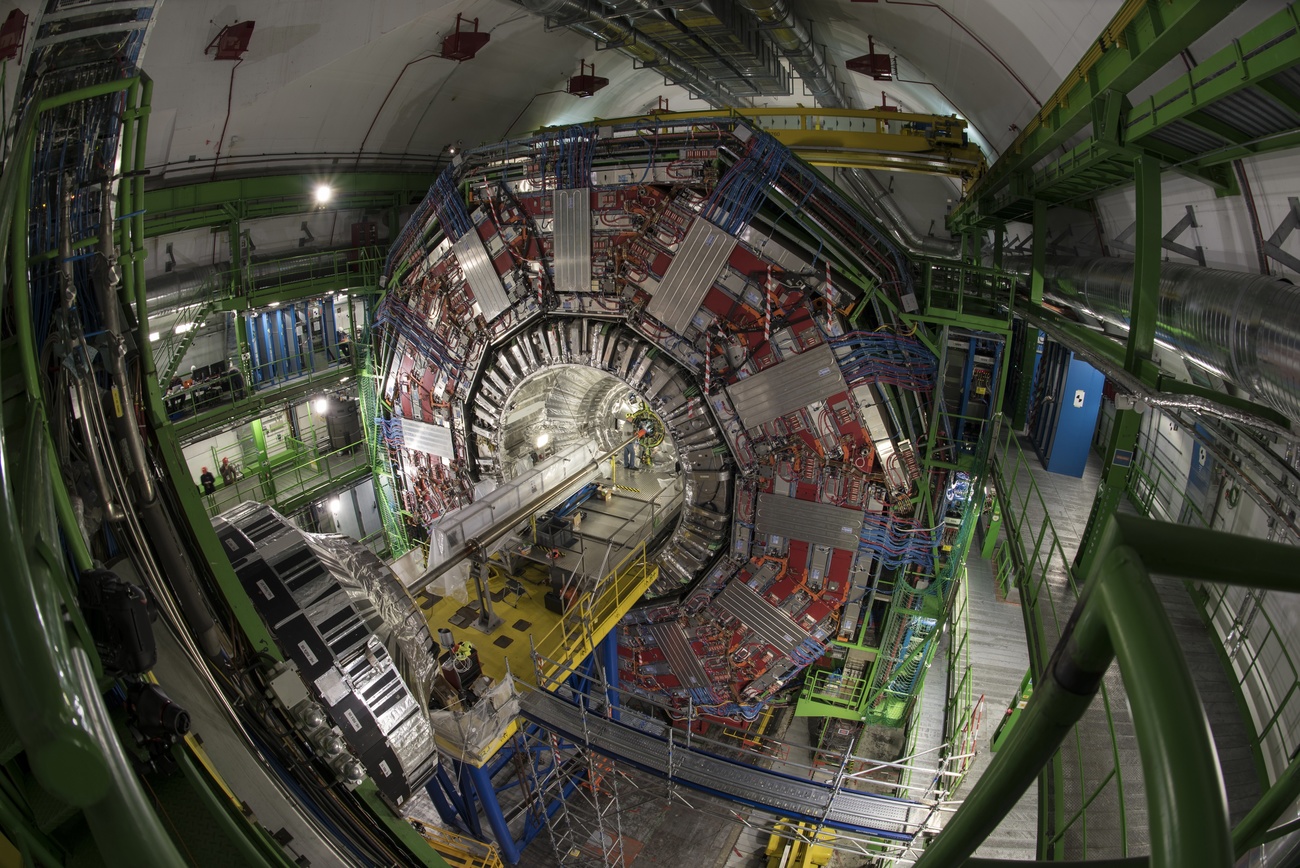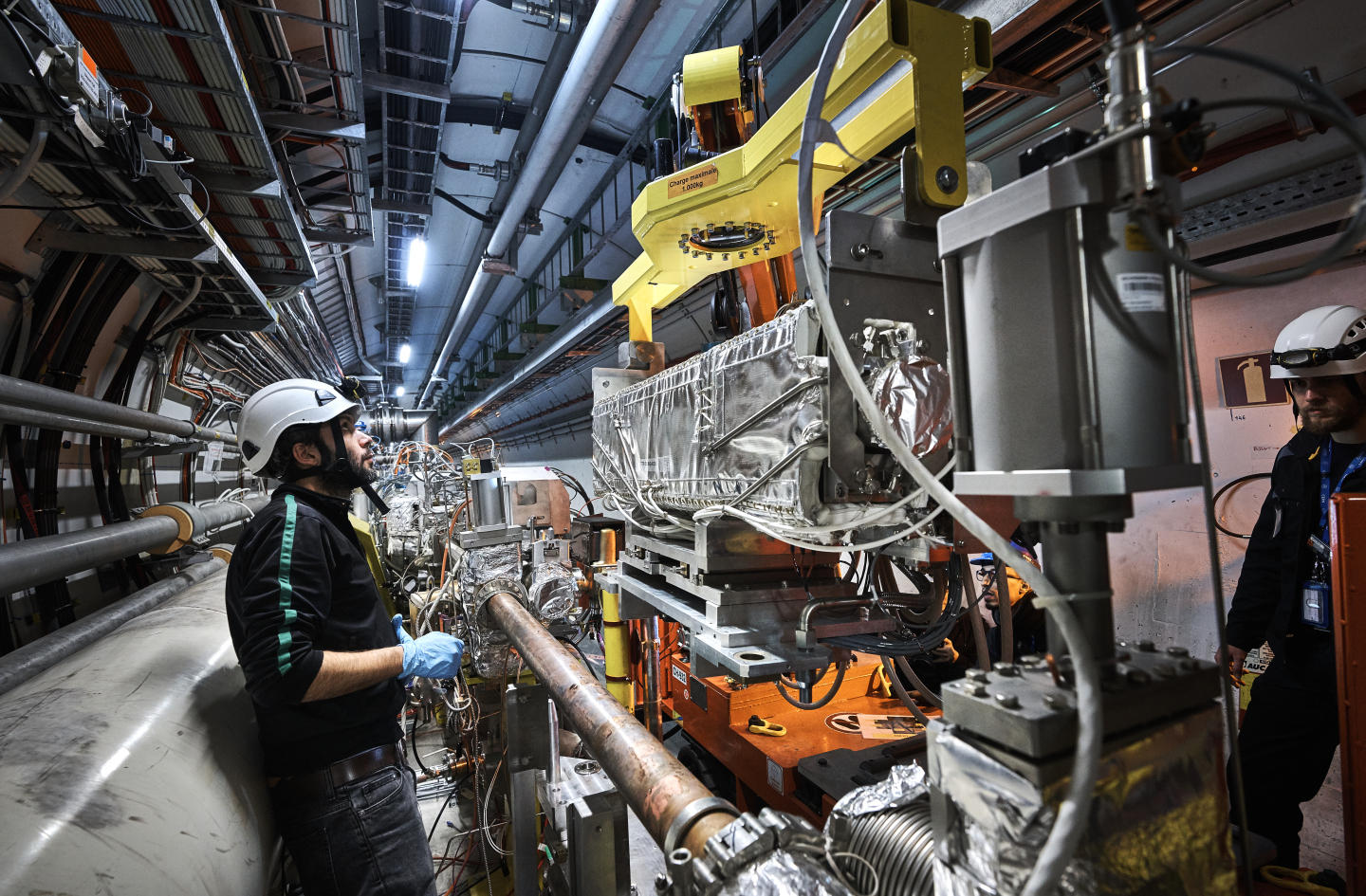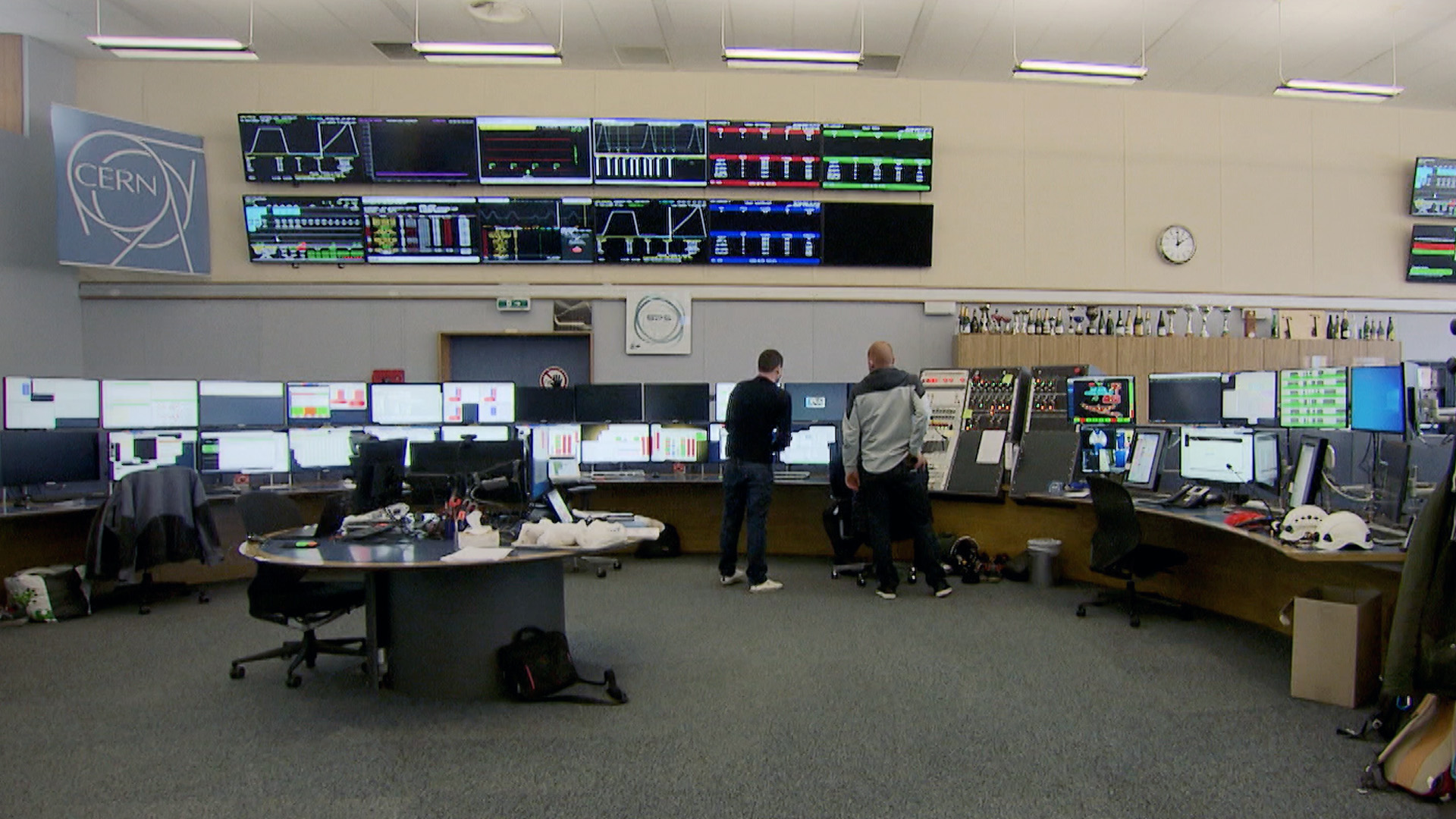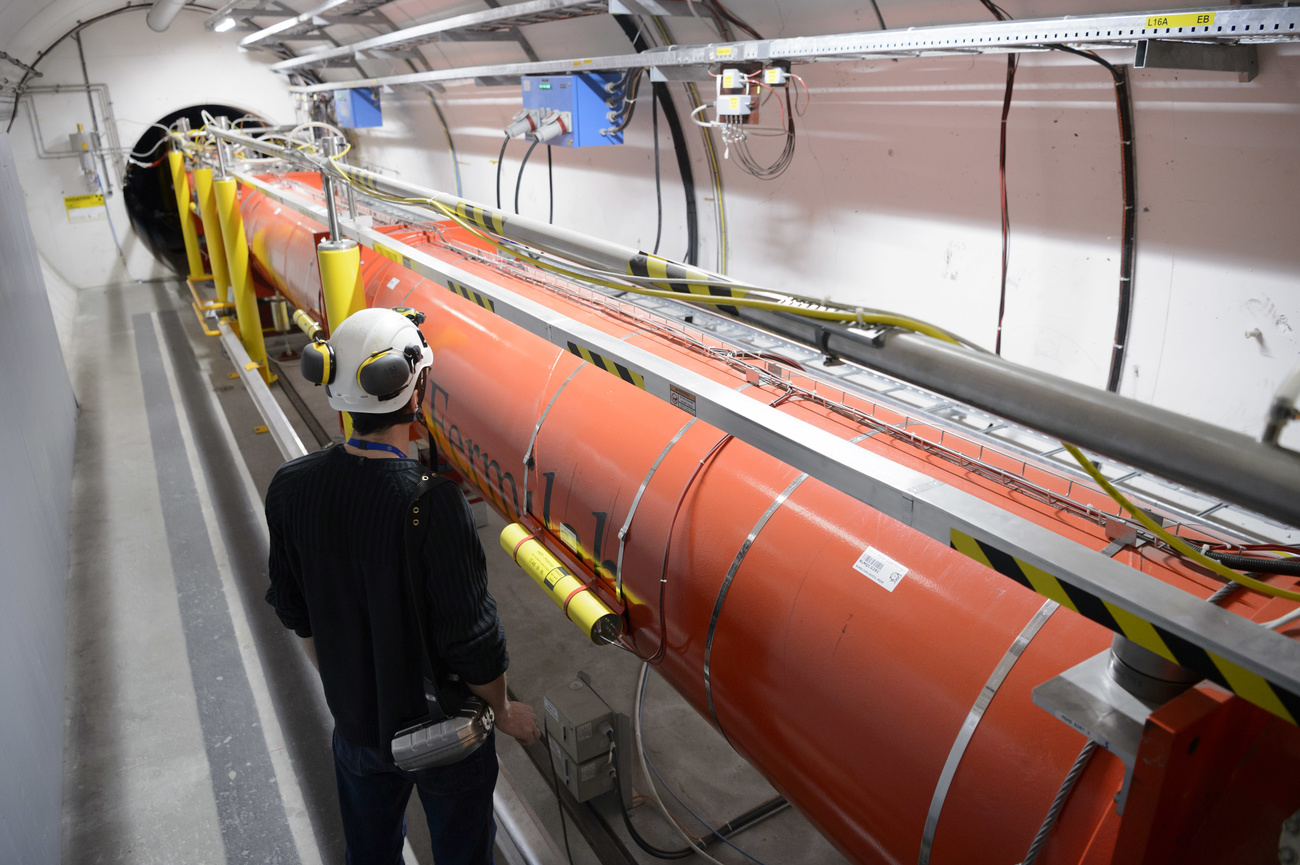
CERN scientists restart hunt for answers to mysteries of universe

The world’s biggest particle accelerator will be fired up again next week as scientists resume research into the mysteries of the universe after a three-year shutdown for work to improve the machine’s power and precision.
The restart of the Large Hadron Collider at the CERN laboratory near Geneva coincides with the 10th anniversary of the celebrated discovery by its researchers of the Higgs boson, a long-sought fundamental particle that gives mass to other subatomic components of the universe.

Scientists hope that increasing the energy and frequency with which protons collide in the LHC’s experiments, after accelerating almost to the speed of light in a 27km underground ring, will provide evidence for “new physics” — fundamental forces and particles that go beyond the so-called standard model, to which the Higgs boson gave a finishing touch.
Thousands of physicists work on the LHC at the CERN headquarters close to the Swiss-French border and remotely from universities around the world.
Among other questions, they are hoping to discover why matter rather than anti-matter dominates the universe and to uncover the nature of “dark matter” — invisible to all scientific instruments so far developed — which is known to be more plentiful than conventional matter.

More
Large Hadron Collider to get bigger and brighter
Slow progress
Some physicists have expressed concern that though well deserved, the excitement over the Higgs discovery and its recognition with a Nobel Prize the following year may have misled the public into believing that finding new particles is the apogee of particle physics — and led to disappointment that nothing so spectacular has emerged since 2012.
“Of course it would be fantastic to see unambiguous evidence of new physics and we always hope, when analysing data, that this will be the moment we observe something . . . like a new fundamental particle,” said Tara Shears, CERN researcher and physics professor at Liverpool university in the UK.
“But it might be that new physics shows itself indirectly, by causing a pattern of differences in particle behaviour that our theory can’t explain and that would take longer to amass the evidence for and understand,” she said. “It all depends on what the nature of new physics is — and as we don’t know this, we have to try every avenue we can think of to find it.”
Gavin Salam, physics professor at Oxford university, pointed out that scientists have learnt a huge amount about the Higgs boson from LHC data over the past 10 years. “Our exploration of Higgs and its interactions has moved far beyond our original expectations,” he said.

More
Smashing particles and popping champagne corks at CERN
‘New’ physics
LHC experiments have shown that the boson is responsible for the mass of an increasing number of other particles, extending the scope of the standard model.
The supercharged LHC would take that process far further, Salam said. One key question he hopes will be answered is whether the Higgs boson is really an indivisible fundamental particle or is composed of other particles.
Several hints of new physics from previous experiments will be investigated in the next LHC run. One finding was an unexpected discrepancy between the behaviour of the electron and its heavy cousin the muon, which appears to contravene the standard model, though the data was insufficient for the researchers to be sure.
Another was an observation from the now-closed Tevatron particle accelerator at Fermilab in the US, which found that another subatomic particle, the W boson, had an unexpectedly large mass that was inconsistent with the standard model. LHC experiments will add enough statistical power to disprove or confirm that inconsistency.
“It is important to add that not seeing evidence for new physics doesn’t mean you haven’t learned anything from searching — far from it,” said Shears.
Copyright The Financial Times Limited 2022

More
World’s largest particle accelerator restarts

In compliance with the JTI standards
More: SWI swissinfo.ch certified by the Journalism Trust Initiative
















![The four-metre-long painting "Sonntag der Bergbauern" [Sunday of the Mountain Farmers, 1923-24/26] had to be removed by a crane from the German Chancellery in Berlin for the exhibition in Bern.](https://www.swissinfo.ch/content/wp-content/uploads/sites/13/2025/12/01_Pressebild_KirchnerxKirchner.jpg?ver=bb19e376)














You can find an overview of ongoing debates with our journalists here . Please join us!
If you want to start a conversation about a topic raised in this article or want to report factual errors, email us at english@swissinfo.ch.